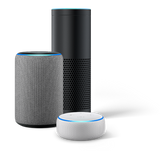The smart lock and the digital lock – many don’t really know the difference between the two. They are often used interchangeably and are mixed up most of the time; using terminology such as ‘smart digital lock’. Or even have new terms get thrown into the picture like electronic locks. There is the general idea that these are door locks that can do more than the conventional door lock and key, but this can be somewhat of an unknown area to many home and property owners.
It’s not surprising though. A quick Google search would most likely show advertisements or websites for smart locks or digital locks, and nothing really talking about how they relate to each other. We decided that there was a need for some distinction and clarification for these terms, just to make sure everybody is on the same page. After all, if we couldn’t tell the difference between apples and oranges and just called them all fruits – we wouldn’t be able to attribute their differences. How could we say which one is sweeter than the other, when they’re of the same name?
So for a better grasp of different lock terminology, let’s start with the basics:
The conventional door lock & key

The conventional door lock and key would be familiar to most as it is the most primitive and widespread of its kind. The key is inserted into the lock to operate it, and together they are used as a security device to protect certain restricted areas. This method of restricting access has been used for quite a long time now (with the earliest keys dating back to ancient Roman times).
In today’s world, the conventional door lock and key is not entirely irrelevant. It is still a simple preventive measure to keep the bad guys out. However, it is neither the most convenient nor the safest option in protecting a home or property. With over-reliance on a physical key, we can just look back on the experience of being locked out from our own homes at some point of time because we forgot to take or misplaced our keys to list out its greatest con.
The digital/electronic lock

While we wouldn’t claim to have scrutinized all research on the distinction between the digital and electronic lock. But from the layperson’s perspective, these two pretty much mean the same thing. They refer to locking devices that are operated through an electric current. This is a pretty broad definition, and covers many types of locks including those that are unlocked via PIN codes, RFID cards, biometrics (eg. fingerprints), and many more.
Keyless entry & elimination of key duplication worries
The digital/electronic lock has numerous advantages over the conventional door lock and key, such as keyless entry (okay RFID cards don’t really count). With a digital/electronic lock, you no longer need to worry about replacing missing keys or remembering to bring them out with you. Also, it eliminates the worry of key duplication.
Time-sensitive entry
While a few digital locks may be capable of executing time-sensitive entry, such as PIN codes which are only valid for a certain period, this is usually a rather tedious process. Home or property owners need to physically set the PIN codes or make any access changes by going into the administrative mode at the lock itself. Not to mention struggle with many steps because the lock is constrained by the number of digits/symbols on the keypad.
You might be interested on these topics

The Google Home is one of the best smart speakers available on the market. Powered by Google Assistant, it allows you...
Read More
Smart Home technology is still in the early stage in the Philippines but it doesn't mean we don't get to enjoy the co...
Read More
1. First off, head over to Settings -> iTunes & App Store -> [your Apple ID] -> “View Apple ID” .
2...
Read More





